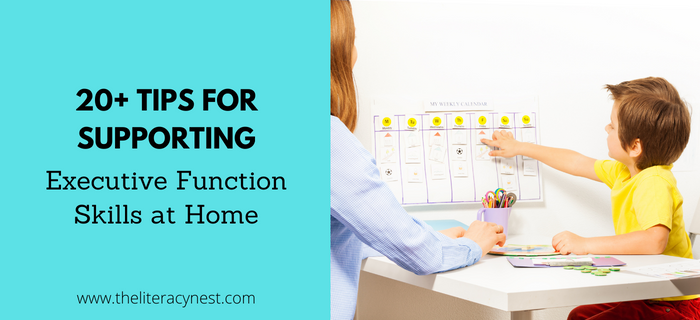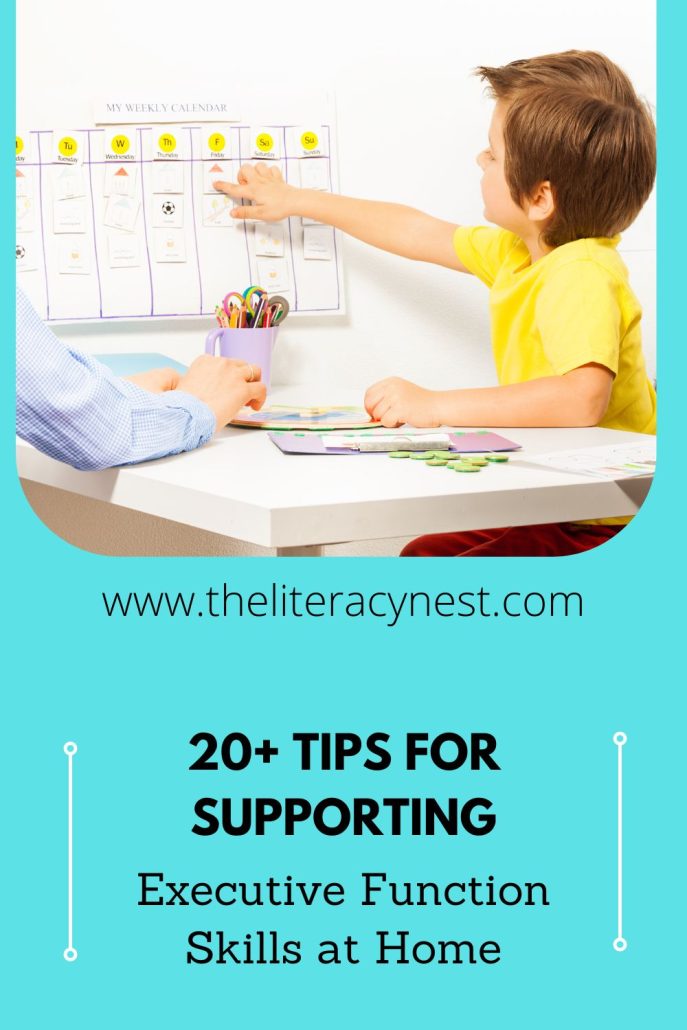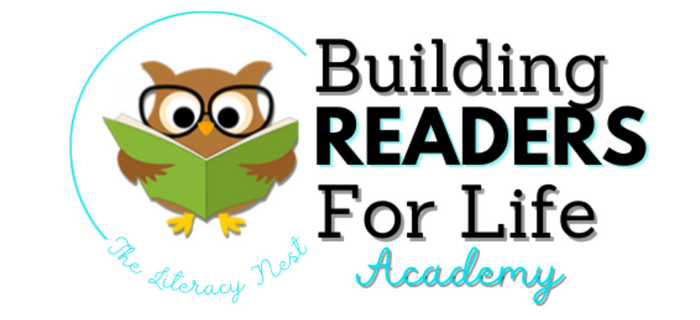20+ Tips for Supporting Executive Function Skills at Home

Executive function refers to a set of brain-based cognitive processes that help us to plan, regulate our behavior, and achieve our goals. Depending on where you look, the number of executive function skills varies considerably. However, executive function skills are related to three main areas: working memory, flexible thinking, and self-control.
This includes skills such as:
- time management
- task initiation
- focus
- organization
- impulse control
- planning and prioritization
- emotional control
- flexibility
- stress tolerance
- defining goals
- observation
Why are Executive Function Skills Important?
In short, executive functioning skills are life skills. Executive functioning skills allow us to anticipate outcomes and adapt to changing situations. Executive functioning is highly correlated to academic and social success. And, executive function weaknesses are frequently associated with ADHD, neurodiversity, learning disabilities, and virtually all neuropsychiatric conditions.
For struggling readers, executive functioning skills are important because reading requires attention, self-monitoring, planning and organization, working memory, and impulse control. Writing requires working memory, self-monitoring skills, task initiation, and integration of information from several brain centers.
When do executive function skills begin to develop?
Executive function skills begin to develop in early childhood and experience rapid development through the preschool years. However, the frontal portion of the brain, the part responsible for EF skills, is not fully developed until the mid-twenties.
EF becomes increasingly necessary and increasingly complex as an individual gets older. EF demands to increase significantly during middle school, high school, and college. Dealing with multiple teachers, driving a car, and managing finances all have high demands on executive functioning skills. It is very important that as these skills are developing, children receive explicit instruction in strategies and adult support.
How can parents support their kids at home?
Parents are teaching executive function skills to preschoolers whether they realize it or not.
- Teaching children to manage emotions, calm down when angry or upset, mindful breathing, and games like Red light, Green light or Simon Says help teach self-control.
- Making a daily checklist, such as morning tasks, and keeping a large family calendar help model and teach children about planning.
- Helping a child to sort and tidy their play area teaches organizational skills and strategies.
- Playing beat the timer or using a visual timer can help children begin to develop a sense of time and therefore time management skills.
- Conversing with children begins to teach them to sustain attention.
Age-appropriate self-care tasks are great examples of executive functioning skills at work.
Setting up an environment that is executive function friendly is easier said than done, but is incredibly helpful for children (and adults) with executive functioning challenges. Structure in their daily lives, clear and simple instructions, clear expectations, and lots of praise is crucial. A supportive environment for EF acts as the brain’s frontal lobe. For adults, this may take the form of sticky notes or the use of telephone alarms and reminders. For children, these supports are generally orchestrated by the adults in their lives.
Want to learn more about working memory? Listen to season 1, episode 9 of the Together in Literacy podcast: Working Memory with Dr. Erica Warren
Executive Functioning Ideas to Help Your Kids
Preschool and younger:
- Take time to develop relationships with children.
- Model what strong executive functioning skills look like.
- Set up space to encourage executive functioning skills.
- Use games as a teaching tool.
Looking for more support in the early years? Read Early Literacy Tips to Support Language Development at Home
Elementary-age students:
- Create a homework box with all materials necessary to complete homework.
- Act as a child’s prefrontal lobe.
- Supply checklists for home and school.
- Establish clear routines for school papers.
- Designate a quiet, clean space for homework.
- Display a wall calendar
- Help children break down large tasks into smaller bits.
- Provide the organizational structure.
- Reinforce self-monitoring and self-awareness.
- Simplify language in directions.
Older students:
- Color-code folders by subject.
- Use a calendar for upcoming assignments.
- Use thinking maps or graphic organizers for studying.
- Provide tools to promote organization such as colored notecards, sticky notes, clipboards, highlighters, colored pens, and planners.
- Explicitly teach notetaking, study skills, and organization.
- Encourage metacognitive skills. Reflect with students on how they learn and what strategies are working well for them.
- Have complete sets of supplies for separate areas and separate activities. This saves time and energy in locating the materials needed.
- Make use of apps and technology.
- Bullet journaling is a very ADHD-friendly organizing tool.
Download this printable version of our guide to Supporting Executive Function Skills at Home! Watch a video walkthrough of the handout, here: Helpful EF Handouts on TLN!
7 Great Books to Help Your Child with their EF Skills:
1. Executive Functioning Workbook for Kids
Activities that promote executive functioning skills for ages 6-9.
2. Executive Function Skills in the Classroom: Overcoming Barriers, Building Strategies
Perfect for professional development, this guide includes practical ideas for implementing executive function support across the school day.
3. Executive Skills in Children and Adolescents: A Practical Guide to Assessment and Intervention
Step-by-step guidelines for developing the promotion of specific skills
4. The Executive Function Guidebook: Strategies to Help All Students Achieve Success
A flexible seven-step model for teaching executive function at any grade level.
5. Conquering Chaos! 8 Keys to Mastering Executive Function and Life Skills for Teens with ADHD: Manage the Chaos Through Using Practical Strategies to Improve Your Mental and Physical Well-being
This guide helps teens to understand executive dysfunction and provides concrete strategies to work with their unique brains.
6. Helping Students Take Control of Everyday Executive Functions: The Attention Fix
An innovative student-centered approach to supporting executive function. Useful to teachers, parents, and caregivers working with students of all ages.
7. Smart but Scattered: The Revolutionary “Executive Skills” Approach to Helping Kids Reach Their Potential
The original book is for parents of 4-13-year-olds, although there is a teen version as well.
Looking for more book recommendations? Read 10 Children’s Books to Support Executive Function!
The positive outcomes we see when we help children with EF skills…
Helping students with executive function skills helps them develop a repertoire of strategies that will not only serve them well in school but also in life. This can lead to more successful academic outcomes, improvement in social skills, better management of life activities, and a more positive effect. In addition, improving the executive functioning skills of children may lead to smoother sailing and greater peace in the home. Many parents find that when their child struggles with executive functioning, their own executive function skills may be pushed to capacity, causing difficulties in areas that were previously rarely problematic.

To learn more about how you can help support your child’s executive functioning, sign up for Building Readers for Life Academy. Both educators and families are welcome!
Building Readers for Life Academy is a monthly membership program that empowers educators AND families by diving into structured literacy and strategies for ALL learners. With BRFL Academy, you’ll learn what it takes to help EVERY student become a reader for life.



